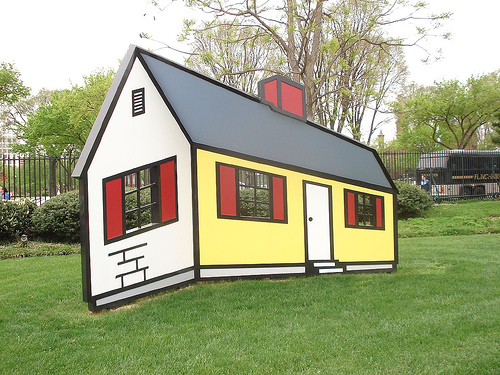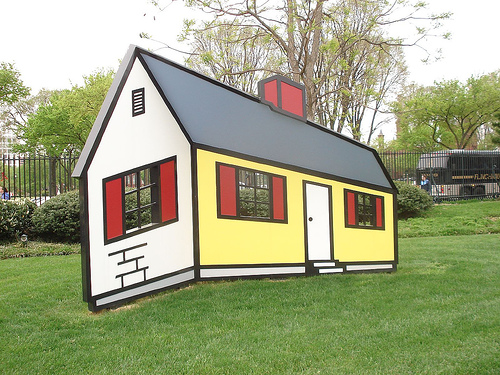 Home is where the art is. And the war too.Photo: Stefano ADearest readers,
Home is where the art is. And the war too.Photo: Stefano ADearest readers,
Welcome to February’s book club conversation. I hope you’ve gotten some good couch time in at home to read At Home: A Short History of Private Life, by Bill Bryson. If you haven’t been able to cozy up next to this “history of the world without leaving home,” worry not. Anyone who has ever lived in a home of any kind is qualified to join the conversation.
(To set the right tone for our discussion, I recommend listening to and watching the song “This Must Be the Place” by Talking Heads. Note David Byrne’s sublime dance with a lamp toward the end, an apt visual for our dance with the comforts of home.)
In the introduction to the book, Bryson writes:
Houses are amazingly complex repositories. What I found, to my great surprise, is that whatever happens in the world — whatever is discovered or created or bitterly fought over — eventually ends up, in one way or another, in your house. Wars, famines, the Industrial Revolution, the Enlightenment — that are all there in your sofas and chests of drawers, tucked into the folds of your curtains, in the downy softness of your pillows, in the paint on your walls and the water in your pipes.
Has At Home made you think differently about where and how you live, readers? Do you see more connections to the rest of the world in your home?
In another passage in the book, Bryson says:
We are so used to having a lot of comfort in our lives – to being clean, warm and well fed – that we forget how recent most of that is. In fact, achieving these things took forever, and then they mostly came in a rush. How that happened when it did, and why it took so long to get it, is what the following pages are all about.
Were you surprised to learn that comfort and privacy are relatively new concepts in human existence? Privacy became more of a cultural phenomenon as recently as the 1800’s. Throughout the Middle Ages, people all slept together in the same room by the hearth. Back then privacy was less of an issue as surviving and procreating were the major things on most people’s “To Do” list.
So when did comfort come into view? “About until the time of the American Revolution, comfort was just something you gave to wounded people and distressed people,” Bryson says in this lively interview with Stephen Colbert. “The idea of comfort in a house or in an environment didn’t exist. It wasn’t a concept people recognized.”
What comforts and privacy do you take for granted, readers? And what comfort and privacy can you not imagine living without?
Stop by tomorrow as we carry on the conversation about At Home.
Comfortably,
Umbra




